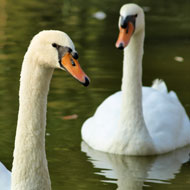Avian influenza risk for wild birds reduced to low

The last finding of H5N6 HPAI in wild birds in the UK occurred on 18 April 2018 in Suffolk.
Defra has reduced the risk level for avian influenza in wild birds to low after an assessment of the disease in England, Scotland and Wales.
According to Defra’s Updated Rapid Risk Assessment, the last finding of H5N6 HPAI in wild birds in the UK occurred on 18 April 2018 in Suffolk. It suggests there is now a decrease in the likelihood of finding more cases in England and Wales, while Scotland is thought to have an even lower risk.
‘The length of time since a positive bird has been detected, together with the departure of the wintering waterfowl and the environmental conditions (notably higher temperature) suggests that the risk of virus still being present in the environment or circulating in waterfowl/wild birds is greatly diminished since the last report,’ the report notes.
‘The risk level for the direct and indirect exposure to poultry is now considered to be LOW both for housed and free range birds although it is still recommended that poultry keepers remain vigilant to any notifiable avian disease and continue to maintain strong biosecurity’.
In January 2018, three swans were found dead and tested positive for H5N6 HPAI in Dorset. Analysis confirmed that the virus had the same characteristics as the strain found in the Netherlands in December 2017.
As of 8 May 2018, 101 wild birds had tested positive for the disease in the UK, over 20 separate sites. The species involved included swans, geese, ducks, raptors, gulls and other waterfowl.



 The latest
The latest